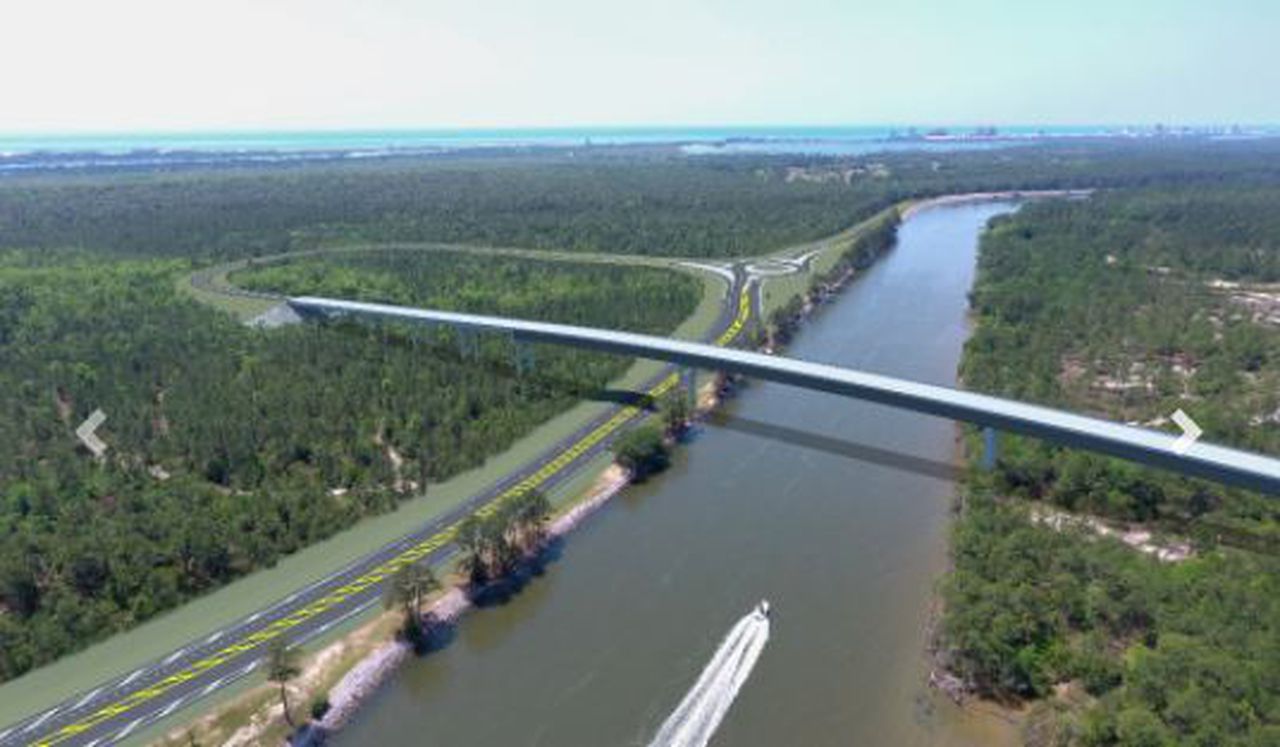ALDOT director testifying why he chose Gulf Shores bridge project
The powerful head of Alabama’s transportation agency testified in a Montgomery County courtroom Monday that he felt he had sufficient information needed to go ahead with building a two-lane bridge over the Intracoastal Waterway in Gulf Shores.
John Cooper, the longtime director of the Alabama Department of Transportation, said the decision to proceed with awarding a $51.85 million contract to Scott Bridge Company last year was based on traffic data obtained by Birmingham-based Skipper Consulting Company, and through “the opinion of numerous people” at the state agency, as well as letters of support from area mayors and state lawmakers.
He said his opinion was also formulated through observations on the increases in traffic along Alabama Route 59 into Gulf Shores, which has become congested during peak travel periods and creates “safety issues,” Cooper said.
But, as Cooper admits, “ALDOT has made no progress on the bridge.”
Meanwhile, a nearby private toll bridge operator has collected around $70 million in revenues in recent years, the director claimed.
Defending decision
Cooper’s testimony kicks off a week of litigation before Judge Jimmy B. Pool in downtown Montgomery, over allegations by the private toll bridge operator — Baldwin County Bridge Company (BCBC) LLC — that Cooper acted in “bad faith” over 10 things related to his decision to move forward with the publicly-built bridge.
The bridge company, which owns and operates the Foley Beach Express toll bridge is asking Pool to halt construction in a case that is headed to the Alabama Supreme Court over questions about whether text messages and other electronic forms of communication within Gov. Kay Ivey’s administration can be withheld under “executive or deliberative privelege.”
The toll bridge is located approximately 1.1 miles west of the proposed new bridge site.
BCBC’s attorney, Joe Espy, will cross-examine Cooper at 9 a.m. on Wednesday. The company has long claimed the Gulf Shores project is unnecessary because it does not provide direct access to the beach. The new bridge would end on Alabama State Route 180, or Canal Road.
The new bridge, BCBC has argued, would bankrupt the bridge company.
During Monday’s testimony, Cooper answered questions from an attorney representing the state that mostly led to a rehash of the long and winding 11-year path the director took toward deciding on pursuing the bridge project last fall.
BCBC has argued that Cooper is moving ahead with the new bridge without conducting any prior traffic studies. Cooper, however, said he’s relied upon Skipper’s traffic analysis before, and felt confident in the projections.
Cooper also reiterated his claim that BCBC’s tolls on its bridge, adjacent to The Wharf in Orange Beach, is creating toll avoidance in which motorists are driving to Alabama 59 so they do not have to pay the toll. He said he’s negotiated, in the past, for BCBC to lower its tolls, which are currently set at $2.75 one-way for most bridge users.
“I did believe that (is the reason for congestion) on Alabama Route 59,” Cooper said. “That’s my belief today.”
BCBC’s lawsuit claims that Cooper has not validated whether his past claims about toll avoidance are true.
Lengthy negotiations
The bridge company, had been negotiating with ALDOT for additional lanes on their bridge under a proposal that banked on only if the new bridge over the Intracoastal Waterway was not built.
The Gulf Shores bridge was initially supposed to be under construction in 2021. The awarding of a contract was put on hold at the encouragement of Ivey’s then-chief of staff and current University of South Alabama president Jo Bonner. According to Cooper, Bonner — a former member of Congress representing Alabama’s coastal region — was approached by the Washington, D.C.-based lobbying firm Squire Patton Boggs, whose senior strategic advisor is former U.S. House Speaker John Boehner.
Negotiations resumed and lasted until September 1, when ALDOT announced it was opening bids and moving forward with the Intracoastal Waterway bridge project.
In August, the company pitched a proposal to build an additional bridge span on the toll bridge along with additional roadway improvements and signage improvements, construct an expanded toll plaza with multiple lanes, as well as other infrastructure improvements.
As part of that plan, the company agreed to remove all tolls assessed on Baldwin County residents.
Cooper called BCBC’s proposal “embarrassing,” and acknowledged at the time that it was time for the state to move on and proceed with a solution to help alleviate beach-bound congestion.
“I spent 11 years trying to (reach an agreement),” Cooper said, referring to the toll company. “After 11 years … we just remained too far apart to agree.”
